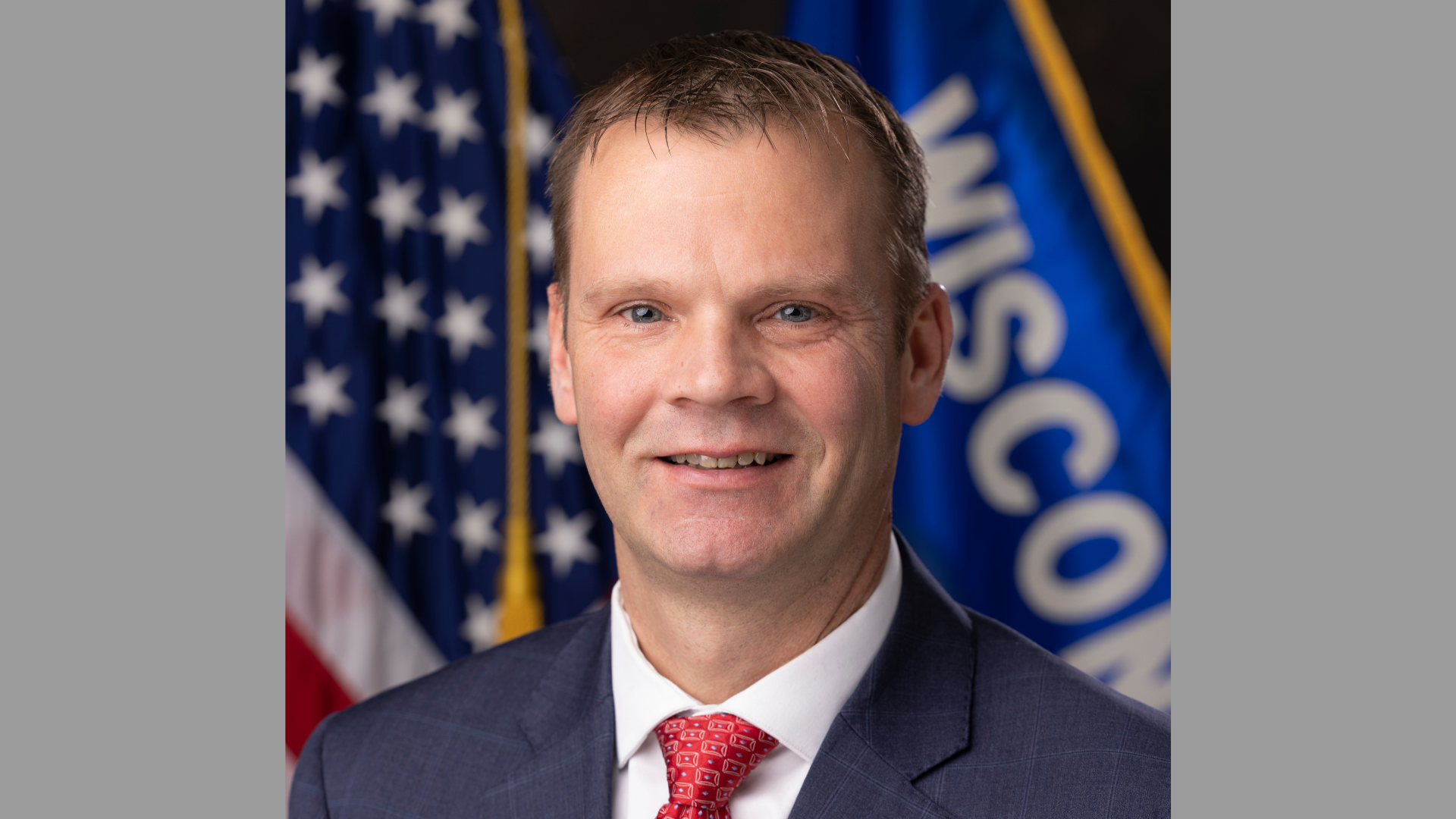Senate Majority Leader Devin LeMahieu told WisPolitics cutting income taxes will be the top priority for Senate Republicans next session with an emphasis on targeting the second highest of the state’s four rates.
LeMahieu, R-Oostburg, noted Assembly Speaker Robin Vos, R-Rochester, has raised the prospect of again trying to cut taxes on retirement income. But LeMahieu said he wants broader tax relief that cuts across ages. The majority leader also said he likely won’t bring up his proposal from this session to move the state to a flat tax and believes there’s no appetite in his caucus to try pumping additional state money into various local aids in an attempt to drive down property taxes.
Dem Gov. Tony Evers in the last budget signed a GOP proposal to reduce the bottom two tax brackets to 4.4% and 3.5%. But he vetoed a proposal to reduce the second-highest bracket to 4.4% and to reduce the highest bracket to 6.5% from the current 7.65%.
That second-highest bracket of 5.3% now covers income between $38,190 and $420,420 for married joint filers.
“If you’re working full-time, I don’t know where you find a job that puts you below that, that second-highest tax bracket, frankly,” LeMahieu said.
Two years ago, LeMahieu introduced a proposal that sought to phase in a flat tax of 3.25% by tax year 2026. He said such a proposal, which received a public hearing in April 2023 but no floor vote, is “unlikely with our current governor.”
He also said Senate Republicans’ approach to school funding could hinge on how the state Supreme Court rules on a challenge to Evers’ 400-year veto.
The current state budget included a $325 per-pupil increase for the 2023-24 school year with another $325 increase in the 2024-25. Evers used his partial veto authority to strike out a hyphen and “20” to change the end date to 2425 rather than 2025.
The justices heard oral arguments this fall in the GOP challenge to Evers’ move.
LeMahieu said if the court allows that partial veto to stand, Senate Republicans could focus their efforts to fund K-12 education on ensuring the state covers much of the $325 in additional spending authority school districts would have in the coming years. But “just flat out buying down property taxes, I don’t think is really a priority in our caucus.”
Beyond general school funding, LeMahieu said Senate Republicans will consider increasing special education, but state Superintendent Jill Underly’s proposal for the state to cover 90% of those costs is “just not sustainable.” That would cost an additional $2 billion in state aid over the 2025-27 budget.
— On other topics, LeMahieu said:
- the Supreme Court “pretty much killed the stewardship fund” after a 6-1 ruling this summer that nixed the Joint Finance Committee’s review process for Department of Natural Resources purchases using the fund. The 2019-21 state budget reauthorized the program through 2025-26 with expenditures of up to $33.25 million annually. LeMahieu said “we’re certainly not going to give a blank check to the DNR” and Republicans won’t sign off on an extension with the current system left by the court’s ruling.
- he continues to believe state-run dispensaries are a “nonstarter” for any path to approving medicinal marijuana. That option was included in an Assembly bill last session, but Senate Republicans balked at the idea, saying it sought to expand the size of government. LeMahieu said he also will oppose any ideas in a medical marijuana bill that could lead to full legalization.
- he plans to pass a budget with 17 GOP votes in the Senate. The caucus struggled at times this session to pass major legislation even at 22 members. That includes a bill to provide public funding for maintenance at the Milwaukee Brewers stadium that needed Dem support to clear the chamber. Still, LeMahieu said he wasn’t yet sure how he would deliver 17 GOP votes on the budget. “It’s December,” he said.
LeMahieu also said he believes Republicans have a path to not only maintaining their majority in the Senate, but picking up a seat in 2026.
Kamala Harris took more votes than Donald Trump last month in all four seats that are considered competitive in two years: the 5th now held by Sen. Rob Hutton, R-Brookfield; the 17th now held by Sen. Howard Marklein, R-Spring Green; the 21st now held by Sen. Van Wanggaard, R-Racine; and the 31st now held by Sen. Jeff Smith, D-Ea Claire.
LeMahieu noted Smith won by 697 votes in 2022 and the district hasn’t changed much under the new maps; longtime GOP redistricting consultant Joe Handrick rated it a 52% Dem seat after the new lines were approved. Sen. Jesse James was elected to the 23rd SD two years ago, but was drawn into the 31st with Smith under the new maps. LeMahieu said he believes it’s likely James, R-Altoona, will challenge Smith in two years, though the GOP senator hadn’t yet confirmed that’s his plan.
He also ticked off several factors he believes are good for Republicans, such as Marklein’s history of overperforming the top of the ticket.
LeMahieu, who was first elected to the Senate in 2014, also said he plans to seek reelection in two years.
“You know, every election you see what happens when you get there. But as of now, I plan on running in 2026,” he said.


